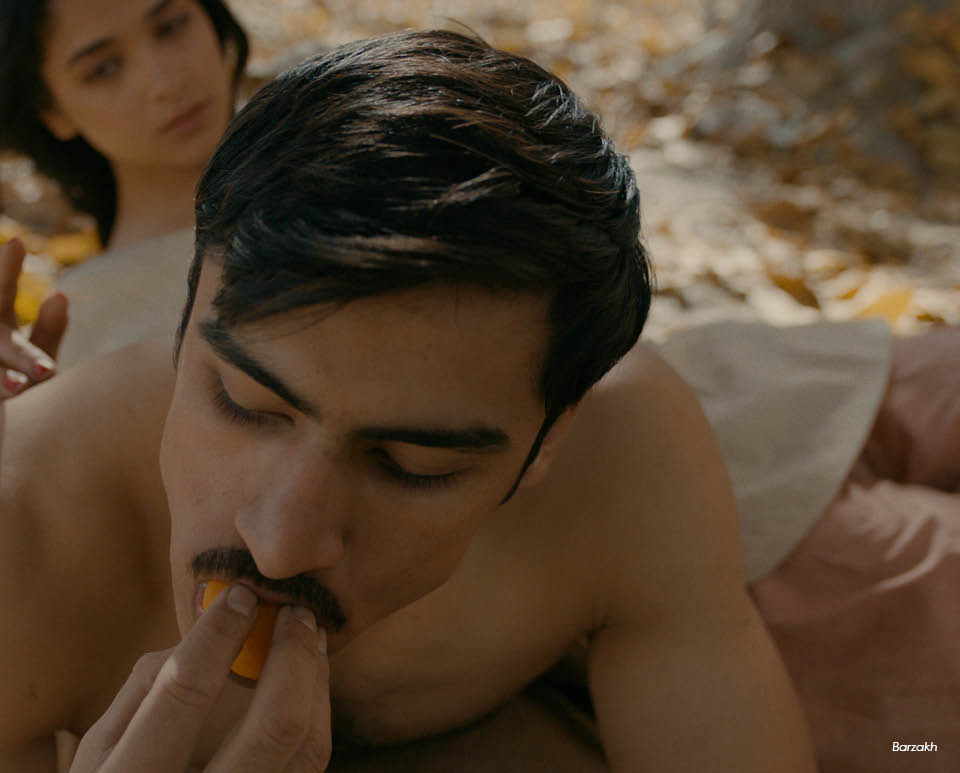
When "Barzakh" premiered in the International Panorama category at Series Mania at the weekend, Asian premium drama took one more step forward in a global TV landscape overwhelmingly dominated by Korea.
The only South Asian selection at Series Mania this year, "Barzakh" (aka "Limbo Land") is competing for Best Series, Director, Actress, Actor, Student Jury and Audience awards at this year’s event in the French city of Lille.
Written and directed by U.K./Pakistan filmmaker, Asim Abbasi ("Cake", "Churails", "Count Abdulla"), "Barzakh" is a family drama that plays out in a world between life and death, fantasy and reality.
Set in Pakistan’s Hunza valley, the series stars Fawad Khan ("Ms. Marvel"), Sanam Saeed ("Cake") and Salman Shahid in a story of love, loss and reconciliation created by Abbasi as a Zindagi original for South Asian streaming service, Zee5.
"Barzakh" revolves around a 76-year old patriarch (played by Salman Shahid) who runs a tourist resort in a mythical mountain valley. When he announces his third marriage to the love of his life – a woman the villagers believe is long dead – he sets in motion events that will change his family and the valley forever.
The series is produced by Shailja Kejriwal, Zee Entertainment Enterprise’s chief creative officer for special projects, and Waqas Hassan. The premiere date on Zee5 has not been announced.
In our conversation with Abbasi ahead of Series Mania, which runs to 24 March, the London-based filmmaker spoke about sensory worlds and dream states, shamans and prophesies, universal consciousness, masculine dysfunction and intergenerational trauma.
You open the series with a quote from the Book of Nowhere – “Respect the sacredness of the earth you were born into, for the story of your soul is inseparable from the magic of your lands”. What is the Book of Nowhere? “Barzakh is set in a fictional place, known as the Land of Nowhere. The Book of Nowhere is a prophetic book created regarding these lands.”
Where did you start creating "Barzakh"? “The story was born in Covid....
When "Barzakh" premiered in the International Panorama category at Series Mania at the weekend, Asian premium drama took one more step forward in a global TV landscape overwhelmingly dominated by Korea.
The only South Asian selection at Series Mania this year, "Barzakh" (aka "Limbo Land") is competing for Best Series, Director, Actress, Actor, Student Jury and Audience awards at this year’s event in the French city of Lille.
Written and directed by U.K./Pakistan filmmaker, Asim Abbasi ("Cake", "Churails", "Count Abdulla"), "Barzakh" is a family drama that plays out in a world between life and death, fantasy and reality.
Set in Pakistan’s Hunza valley, the series stars Fawad Khan ("Ms. Marvel"), Sanam Saeed ("Cake") and Salman Shahid in a story of love, loss and reconciliation created by Abbasi as a Zindagi original for South Asian streaming service, Zee5.
"Barzakh" revolves around a 76-year old patriarch (played by Salman Shahid) who runs a tourist resort in a mythical mountain valley. When he announces his third marriage to the love of his life – a woman the villagers believe is long dead – he sets in motion events that will change his family and the valley forever.
The series is produced by Shailja Kejriwal, Zee Entertainment Enterprise’s chief creative officer for special projects, and Waqas Hassan. The premiere date on Zee5 has not been announced.
In our conversation with Abbasi ahead of Series Mania, which runs to 24 March, the London-based filmmaker spoke about sensory worlds and dream states, shamans and prophesies, universal consciousness, masculine dysfunction and intergenerational trauma.
You open the series with a quote from the Book of Nowhere – “Respect the sacredness of the earth you were born into, for the story of your soul is inseparable from the magic of your lands”. What is the Book of Nowhere? “Barzakh is set in a fictional place, known as the Land of Nowhere. The Book of Nowhere is a prophetic book created regarding these lands.”
Where did you start creating "Barzakh"? “The story was born in Covid. I had done "Churails" and wanted to focus on something smaller and intimate, but set in a world that feels universal and big... a family drama set in a world of magic realism, that speaks about the universe and universal consciousness, rather than about a family and its dysfunction.”
You shifted gears in a big way from the female-centric focus of "Churails"... “I wanted women in this show, but I wanted women not to be the focus. I wanted the focus to be on the father and the sons and the dysfunction that comes from masculinity. Women here are almost not human. The women either have powers or are ghosts, and men are the ones who are real and less in touch with their feelings. The idea of grounding with fathers and sons and inter-generation trauma was important.”
What story-telling boundaries does "Barzakh" push? “It moves away from the ‘hooky’ binge effect. It’s more expansive thematically. I’ve attempted to talk about themes that mainstream shows don’t talk about, and not to keep moving through editing. It has a third of the shots that were in "Churails". In terms of filmmaking and cinematography, its closer to films”.
Where/how does "Barzakh" challenge you as a creator? “It all boils down to how much creative freedom you get from producers and commissioners. Everything I do is a constant learning. I always want to be shifting gears.”
The full interview with Asim Abassi & Shailja Kejriwal will appear in ContentAsia’s magazine for MipTV 2023 in April 2023.



















